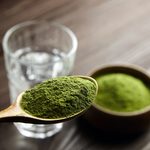Food Myths Revealed
Think red wine’s good for you, and coffee causes cancer? Get the truth about common food falsehoods.

Myth: Coffee Causes Cancer
While we’re on the topic of breakfast, coffee is another wrongly maligned staple of the morning meal. In the late 1970s, researchers reported that caffeine caused the growth of cysts in breast tissue. Then, in 1981, a Harvard study found an increase in pancreatic cancer among coffee drinkers.
Soon after, major studies examining the risk of other cancers among coffee drinkers came up empty. In some cases, just the opposite appeared to be true. A review of 17 studies conducted from 1990 to 2003 found a 24 per cent reduced risk of colon cancer among people who regularly sipped coffee.
Myth: Eggs Are Bad for You
For years, nutrition experts cautioned that eggs were unhealthy. After all, those gifts from the henhouse are one of the richest sources of cholesterol in the human diet. Since cholesterol plugs up arteries, eggs must raise the risk of heart attacks and strokes, right?
Wrong. Large studies suggest that this theory is full of feathers. The famous Framingham Heart Study, which first showed that high blood cholesterol causes heart attacks, found no connection between eating eggs and cardiovascular disease.
It turns out that only about 25 per cent of the cholesterol in your blood comes from food. The other 75 per cent is manufactured by the liver, which produces lots of cholesterol when you eat cheeseburgers, doughnuts, and other sources of saturated fat-something eggs are low in. Eggs are also filled with plenty of useful nutrients that may offset any damage done by their cholesterol content, including unsaturated fat, folate and other B vitamins, and minerals. And if you shop around, you can find eggs that contain healthful omega-3 fatty acids.
Myth: Red Wine is the Way to a Healthy Heart
It’s the alcohol in red wine-and white wine and beer-that’s responsible for most heart-related benefits. Large population studies suggest that most people enjoy at least some health benefits from sipping any form of alcohol in moderation.
Alcohol raises HDL (“good”) cholesterol and seems to make blood less likely to clot. If you enjoy alcoholic beverages, most health authorities agree that having no more than a drink or two per day (one for women, two for men) may offer some benefits and probably can’t hurt.
Myth: Fat-Free and Low-Fat Foods Are Always Healthier
When it comes to dairy products and some other foods, such as meat, you can reliably adopt a simple rule: The less fat, the better. But that’s not always the case with other foods.
Salad dressings made with healthy monounsaturated fats, such as olive or canola oil, may help prevent heart disease and other conditions. A recent study shows that you may be missing out on important disease protection by going oil-free, because without some fat in the meal, your digestive tract won’t absorb many of the nutrients in a salad.
Myth: Raw Fruits and Veggies Are Best
The theory that cooking foods makes them less nutritious is a bit half-baked. Raw food advocates note that heat destroys enzymes in foods that make them more easily digested. While that’s true, cooking also breaks down fiber, making it easier for your body to process.
Also, scientists have discovered that cooking actually boosts levels of important compounds in some fruits and vegetables. For instance, ketchup contains five to six times more of the antioxidant lycopene than raw tomatoes do, making it much more useful against diseases such as prostate cancer.
Myth: Frozen and Canned Produce is Less Nutritious
Fresh fruits and vegetables are healthier than the frozen and canned variety at the instant they are picked. But, the foods you find in the produce section have often had a long journey from the moment they were packed in crates. During shipping and storage, natural enzymes are released in fresh fruit and vegetables that cause them to lose nutrients.
Food processors quick-freeze fresh-picked produce, which preserves much of its vitamin and mineral content. “With some fruits and vegetables, you actually lock in a higher nutrient content by freezing,” says Douglas Archer, Ph.D., a professor of food science at the University of Florida. Canning does not deplete fruit and vegetables of significant amounts of nutrients either. While heat processing may reduce levels of some vitamins, certain canned foods-such as spinach and pumpkin-actually have higher levels of vitamin A than fresh versions.
Myth: Nuts Are Too Fattening
Nuts contain a lot of fat, but it’s mostly the good kind. Dry-roasted peanuts have three to four times more heart-healthy monounsaturated fat than saturated fat. Recent research suggests that eating nuts as part of a healthy diet may even help you lose weight.
Researchers believe that the fat in nuts helps people feel full, and the protein may use up calories as it digests. As an added bonus, high-protein foods help trigger the release of a hormone known to reduce hunger.



